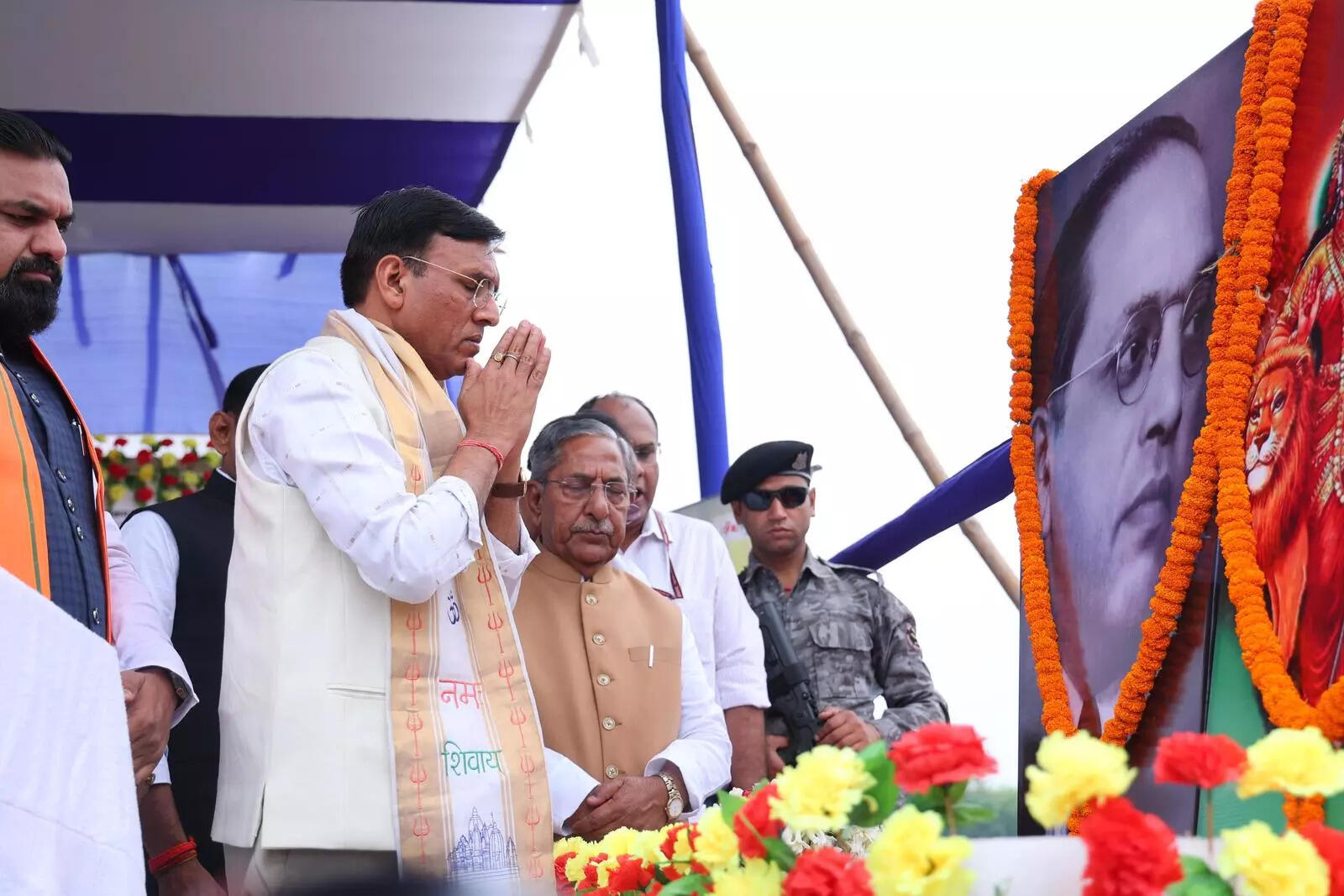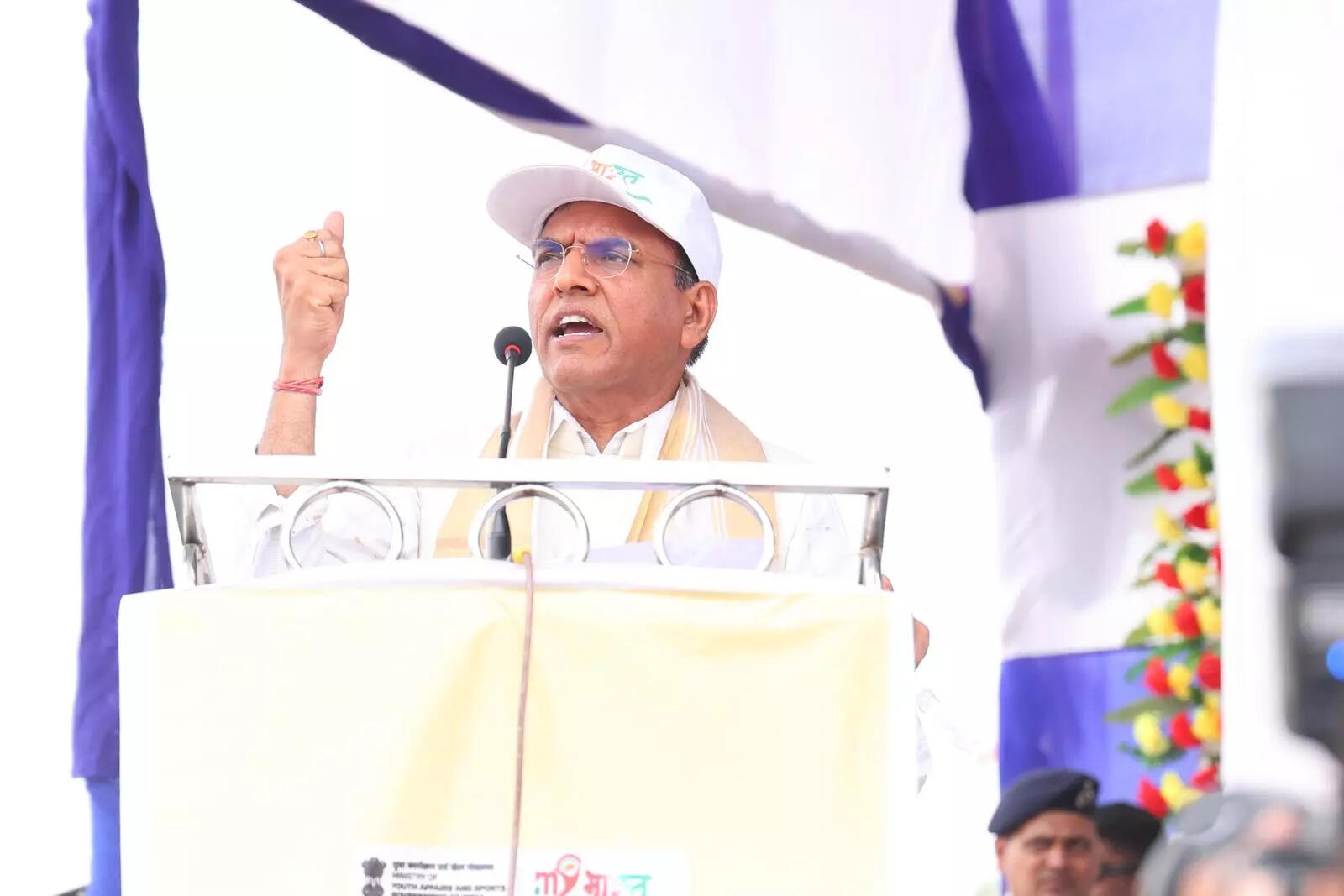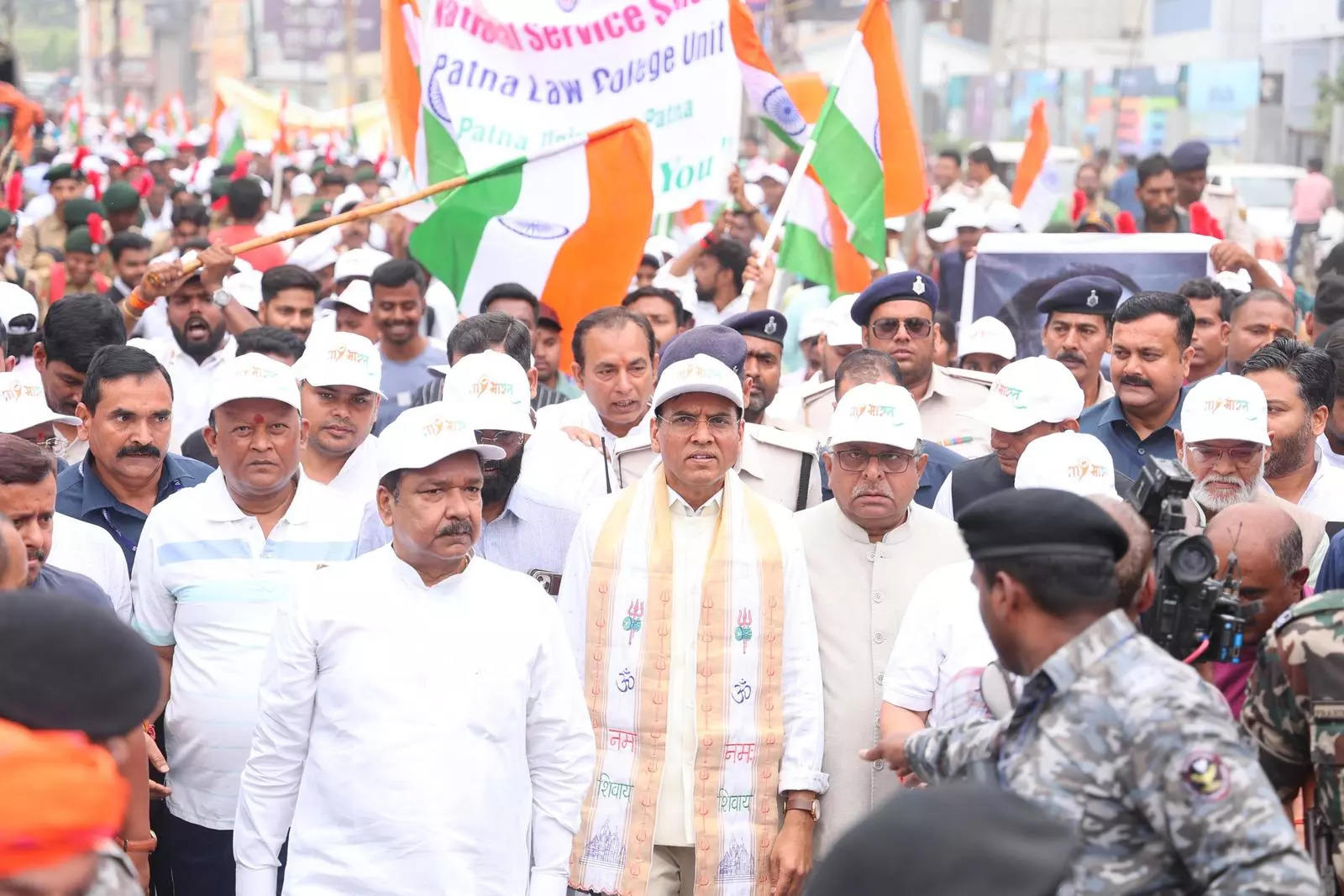
Patna, April 13: In the heart of Bihar’s capital, where history whispers through the corridors of colonial-era buildings and where India’s democratic pulse beats strong, a vibrant spectacle unfolded today.
Over 6,000 youth volunteers affiliated with MY Bharat, the government’s flagship youth engagement initiative, gathered at Patna’s iconic Gandhi Maidan to participate in the ‘Jai Bhim Padyatra’—a commemorative march honouring the birth anniversary of Bharat Ratna Dr. Bhimrao Ramji Ambedkar.
Leading this extraordinary tribute was Union Minister of Youth Affairs and Sports, and Labour and Employment, Dr. Mansukh Mandaviya, whose address to the youth transformed the padyatra into more than a physical march—it became a moral journey, a reaffirmation of India’s constitutional soul.
A Living Tribute to a Titan of Justice
The padyatra, one of 24 such events being organised across the country to celebrate 75 years of India’s Constitution, served as both a remembrance and a renaissance. It drew upon the spiritual and ideological legacy of Dr. Ambedkar, the chief architect of India’s Constitution and a ceaseless crusader against caste oppression, social inequality, and economic injustice.

Commencing from Gandhi Maidan, the participants marched through Patna’s thoroughfares, bearing placards inscribed with Ambedkar’s stirring declarations—“I measure the progress of a community by the degree of progress which women have achieved” and “Cultivation of mind should be the ultimate aim of human existence.” Each step in the padyatra echoed the ambition to realise Ambedkar’s dream: a society built not on privilege and prejudice, but on equal rights, dignity, and opportunity.The padyatra culminated at the vicinity of the Patna High Court, where a statue of Dr. Ambedkar stands tall—both as a reminder of his struggles and a beacon of hope. Here, Dr. Mandaviya, along with youth volunteers, conducted a symbolic cleanliness drive and offered floral tributes at the foot of the statue.
The Voice of the Youth, the Wisdom of Ambedkar
Speaking at the event, Dr. Mandaviya said, “As the sun rose over Patna, it illuminated not only a statue but a spirit, a renewed commitment to Dr. Ambedkar’s ideals and a Viksit Bharat led by its most powerful force—its youth.” He urged young Indians to go beyond passive admiration and actively uphold the constitutional principles Ambedkar enshrined—justice, liberty, equality, and fraternity.
“Youth is not only the future of the nation; it is its conscience, its change-agent, and its most potent force for transformation,” Mandaviya said, exhorting them to ensure that the rights given by Ambedkar are used wisely to build a more harmonious and equitable India.
Nationwide Movement for Constitutional Values
The ‘Jai Bhim Padyatra’ in Patna was not an isolated event. Across India, from state capitals to small towns, over 5,000 such padyatras were organised simultaneously under the aegis of MY Bharat. Volunteers everywhere undertook the symbolic act of cleaning statues of Babasaheb, offering floral tributes, and taking pledges to remain steadfast in their commitment to the values he championed.
Each padyatra became a moving classroom—where young citizens learned not only about Ambedkar the Constitution-maker but Ambedkar the reformer, economist, scholar, and moral philosopher.
The Everlasting Flame of Ambedkar’s Thought

Dr. B.R. Ambedkar’s life story is unparalleled in modern Indian history. Born in 1891 into a socially ostracised Dalit family, he rose through relentless perseverance to become one of the most formidable minds of the 20th century. A Columbia and London-educated economist and legal scholar, Ambedkar transformed India’s vision of justice.
He introduced the world to the revolutionary idea that democracy must be social as well as political, that true freedom lies not merely in independence from colonial rule but in emancipation from centuries of internal inequity.
The Constitution he drafted remains a living document, ever-responsive to the needs of a complex nation, and the padyatra was a vivid enactment of its continuing relevance.
A Call to Conscience
In an era of rapid technological progress and economic transformation, the padyatra in Patna served as a gentle but firm reminder: the spirit of India must remain anchored in its moral core. The challenge of this generation is not only to innovate, but also to include; not only to grow, but also to uplift.
As thousands of young feet marched in unison today, they did not merely retrace the steps of the past—they charted a new path forward, one that seeks to embody Babasaheb’s enduring dream: an India where every individual, irrespective of caste or creed, can stand tall, speak freely, and live with dignity.
(Anoop Verma is Editor-News, ETGovernment)


